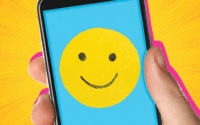Want to avoid burnout? Do nothing for increased productivity
Being your most productive self doesn’t necessarily mean doing more, according to the author of a new book.
Fox News Digital sat down with Celeste Headlee, a journalist and radio host, at the National Book Festival in Washington, D.C., to discuss her book, “Do Nothing: How to Break Away from Overworking, Overdoing and Underliving.”
At the Library of Congress-run event on Sept. 3, 2022, Headlee, who is based in D.C., said she was inspired to write the book after trying to solve her own struggles with overwork.
Headlee said that making changes that were supposed to help her become “less overwhelmed” — such as being her own boss — actually made her life “worse.”
In a society in which it’s common for workers to feel as if they’re overdoing it, especially at a time of remote work and the challenge of separating work and leisure, Headlee offered up tips on avoiding burnout.
Her first piece of advice: Remember you’re a human being with human limitations.
“You can say ‘rise and grind’ all you want, but there’s only so much thought you can [accomplish] over the course of a day,” she said.
“So, after that point, working more isn’t actually getting more done — it’s literally counterproductive.”

Headlee also suggested avoiding unnecessary screen exposure. That includes the urge to check work-related emails or instant messages on a constant basis.
“Doing nothing at all is actually going to help you produce more,” she said.
Pulling back on screen time altogether will allow the brain to find pure rest, which is not an easy task to accomplish, said Headlee.
“People mistake idleness for leisure,” she said. “You can be working and be idle.”
Headlee’s definition of achieving pure rest is participating in a hobby or an action that is simply for pleasure — and not for earning a living or aiming for a reward.
This can also be applied to the goal or reward of earning reactions on social media. Headlee warned that apps such as Instagram and TikTok can be addictive and exhausting.

“You’re not baking bread in order to post it on social media,” she said. “You’re baking bread to eat it.”
“Find a way to fill your home with hobbies,” she said.
On that point, she added, “Do something that’s valueless to the broader society.”
No-strings-attached hobbies count as rest just as much as sitting and doing absolutely nothing at all, Headlee suggested — and she reassured those people who are chronically restless that this is “OK” to do.
Another tip from Headlee: People should know how they’re spending their time.
“Understanding what you’re doing with your time is a really underrated exercise,” she said.

Starting this exercise can include writing down how you’re spending your time every 30 minutes to an hour each day, Headlee said, adding that it’s important to be “brutally honest.”
After attempting the exercise herself, Headlee calculated that she had been spending more than three hours per day on social media.
“Do I really want to spend half my day on social media?” she said about herself. “Of course not.”

Another way to avoid burnout and overwork is to set healthy boundaries in the workplace, Headlee advised.
Headlee recommended that workers try to to establish a clear schedule at work — and keep to it.
“You have to know what your limits are … and what well-being looks like for you before you can enforce it,” she said.


